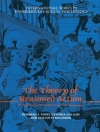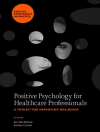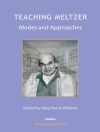Providing a comprehensive perspective on human desire, this volume brings together leading experts from multiple psychological subdisciplines. It addresses such key questions as how desires of different kinds emerge, how they influence judgment and decision making, and how problematic desires can be effectively controlled. Current research on underlying brain mechanisms and regulatory processes is reviewed. Cutting-edge measurement tools are described, including practical recommendations for their use. The book also examines pathological forms of desire and the complex relationship between desire and happiness. The concluding section analyzes specific applied domains–eating, sex, aggression, substance use, shopping, and social media.
Tabella dei contenuti
Introduction, Wilhelm Hofmann & Loran F. Nordgren
I. Basic Processes and Mechanisms
1. Elaborated Intrusion Theory: Explaining the Cognitive and Motivational Basis of Desire, Jackie Andrade, Jon May, Lotte van Dillen, & David J. Kavanagh
2. Grounding Desire and Motivated Behavior: A Theoretical Framework and Review of Empirical Evidence, Esther K. Papies & Lawrence W. Barsalou
3. Desire and Desire Regulation, Wilhelm Hofmann, Hiroki P. Kotabe, Kathleen D. Vohs, & Roy F. Baumeister
4. Desire over Time: The Multifaceted Nature of Satiation, Joseph P. Redden
5. The Measurement of Desires and Craving, Michael A. Sayette & Stephen J. Wilson
II. Neuroscience of Desire and Desire Regulation
6. Motivation and Pleasure in the Brain, Morten L. Kringelbach & Kent C. Berridge
7. Neuroscience of Desire Regulation, Richard B. Lopez, Dylan D. Wagner, & Todd F. Heatherton
8. Individual Differences in Desire and Approach Motivation, Eddie Harmon-Jones, Philip A. Gable, & Cindy Harmon-Jones
9. Developmental Changes in Reward Sensitivity and Cognitive Control across Adolescence: Implications for Desire, Adriana Galván
III. Desire, Judgment, and Decision Making
10. License to Sin: Reasoning Processes in Desire, Denise T. D. de Ridder, Jessie C. de Witt Huberts, & Catharine Evers
11. Perceptions of Desire: A Hot-Cold Empathy Gap Perspective, Rachel L. Ruttan & Loran F. Nordgren
12. Want-Should Conflict: A Synthesis of Past Research, T. Bradford Bitterly, Robert Mislavsky, Hengchen Dai, & Katherine L. Milkman
IV. Desire, Affect, and Well-Being
13. You Shall Not Always Get What You Want: The Consequences of Ambivalence toward Desires, Frenk van Harreveld, Hannah U. Nohlen, & Iris K. Schneider
14. Desires and Happiness: Aristotelian, Puritan, and Buddhist Approaches, Shigehiro Oishi, Erin Westgate, Jane Tucker, & Asuka Komiya
15. Liking Little, Wanting Less: On (Lacking) Desire in Psychopathology, Michael T. Treadway
V. Applied Content Domains
16. Desire for Food and the Power of Mind, Anne Roefs, Katrijn Houben, & Jessica Werthmann
17. Sexual Desire: Conceptualization, Correlates, and Causes, Pamela C. Regan
18. Aggressive Desires, Thomas F. Denson, Timothy P. Schofield, & Emma C. Fabiansson
19. The Role of Desire and Craving in Addiction, Ingmar H. A. Franken
20. Three Senses of Desire in Consumer Research, Utpal M. Dholakia
21. Old Desires, New Media, Diana I. Tamir & Adrian F. Ward
Circa l’autore
Wilhelm Hofmann, Ph D, is Professor of Social and Economic Cognition at the University of Cologne, Germany. He also has taught and conducted research at the University of Würzburg (Germany), the University of Amsterdam (The Netherlands), and the University of Chicago Booth School of Business. Dr. Hofmann has written more than 60 professional publications, including two books. His research is concerned with desire, self-control, and moral behavior, particularly the emergence of impulses and desires, the role of executive functioning in self-control and health behavior, and the connection among self-control, morality, and happiness. In his methodological approach, he strives to combine the rigor of experimental research with the ecological validity and richness of behavioral data from everyday life.
Loran F. Nordgren, Ph D, is Professor of Management and Organizations at Northwestern University’s Kellogg School of Management and Codirector of the Human Ecology Lab at Northwestern, which aims to develop, extend, and test psychological theory through immersive field research. His research broadly considers the basic psychological processes that guide how we think and act. Much of Dr. Nordgren’s research examines how people maintain self-control in the face of desire, how people think about desire, and how people’s beliefs about desire inform their self-control strategies. He is a recipient of the Theoretical Innovation Award in Social Psychology from the Society for Personality and Social Psychology.












